North Carolina Humanities organizes tours of Smithsonian Institution exhibitions in North Carolina to start dialogue, facilitate connections, open doors to local history, culture, people, and build community.
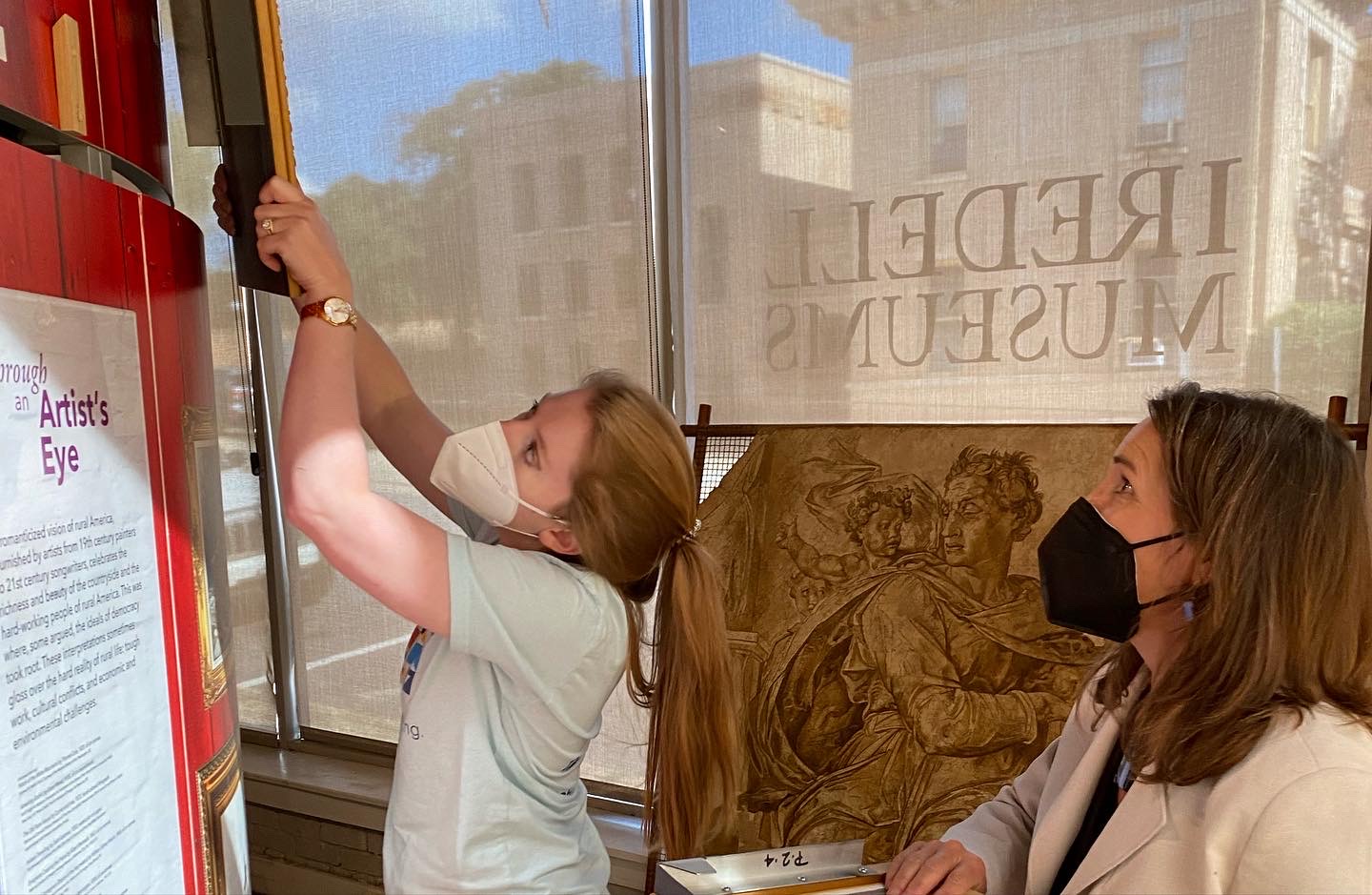
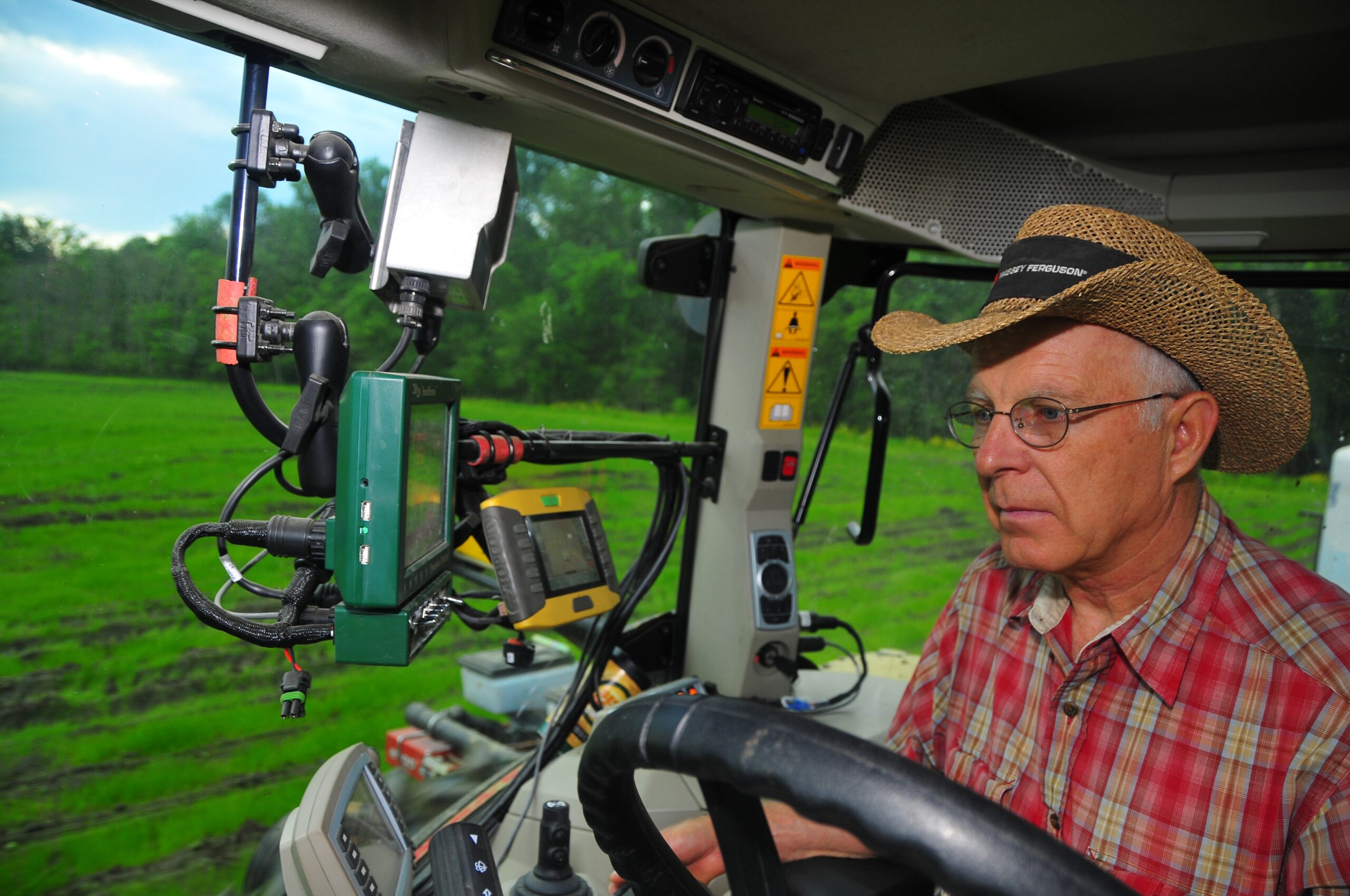
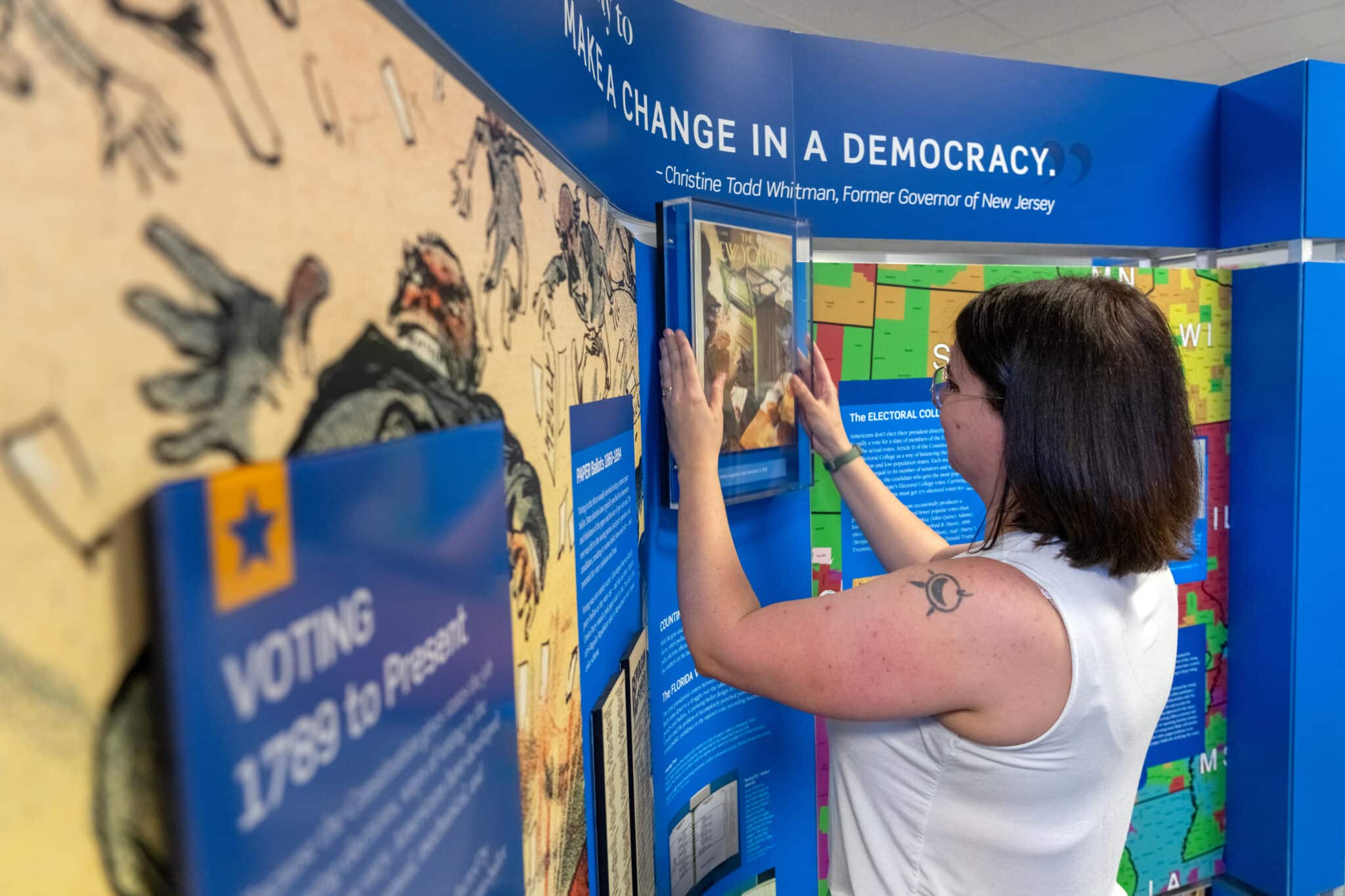
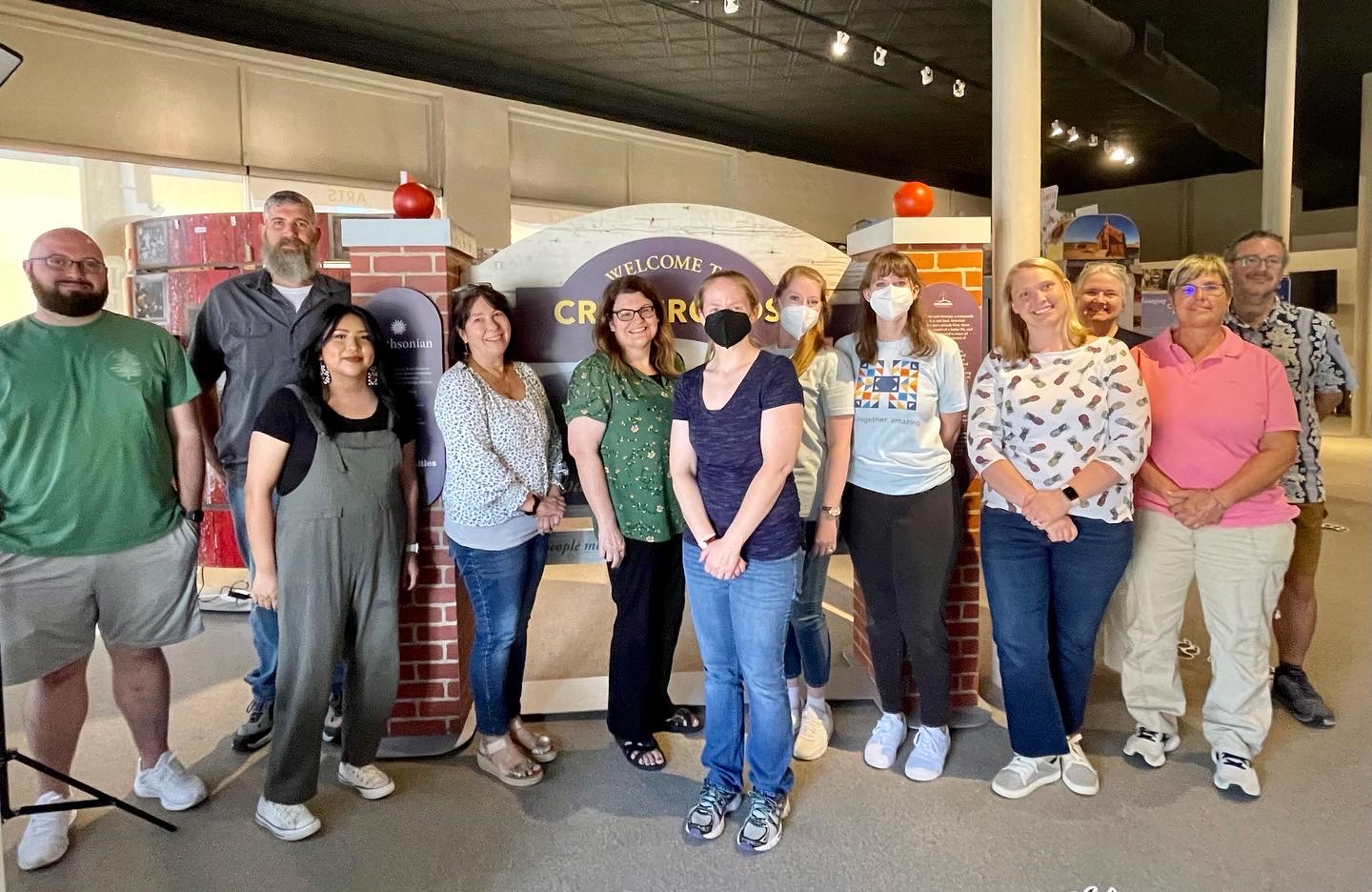
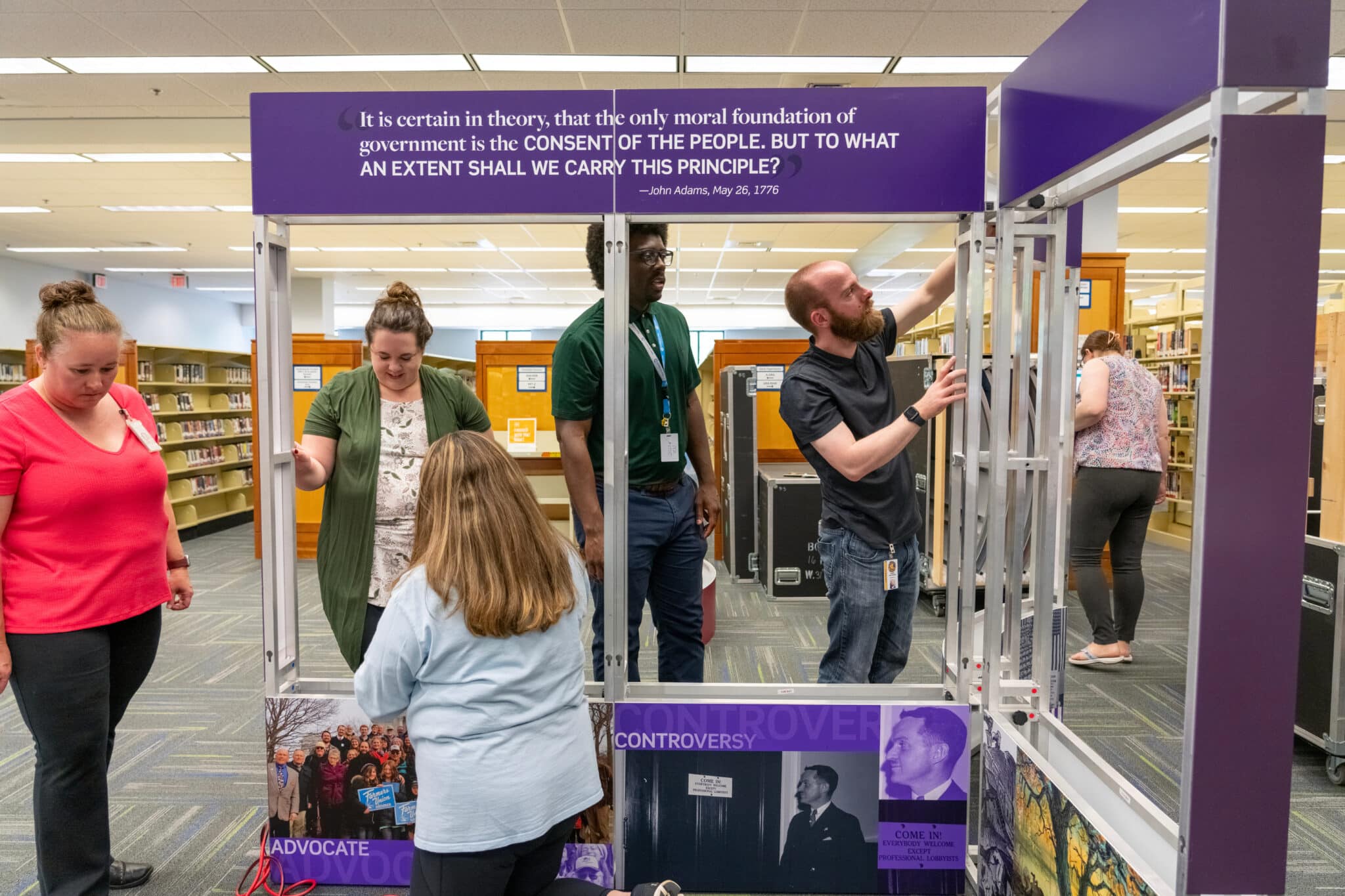

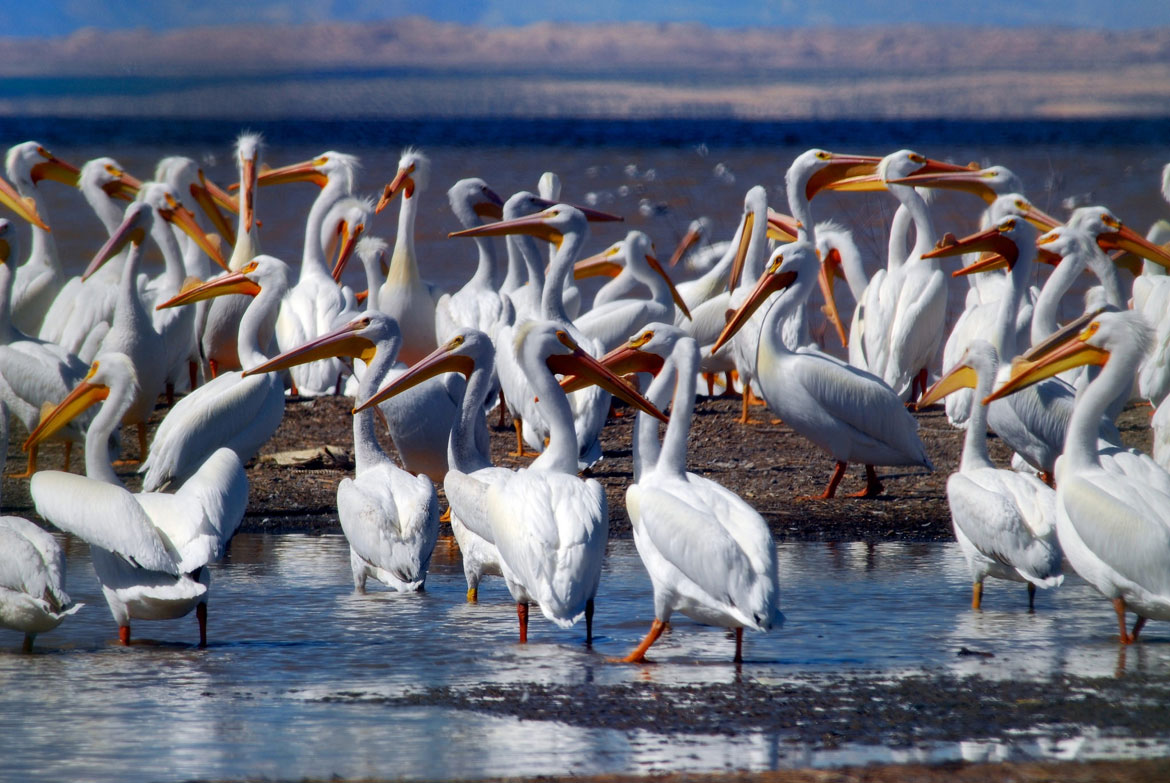
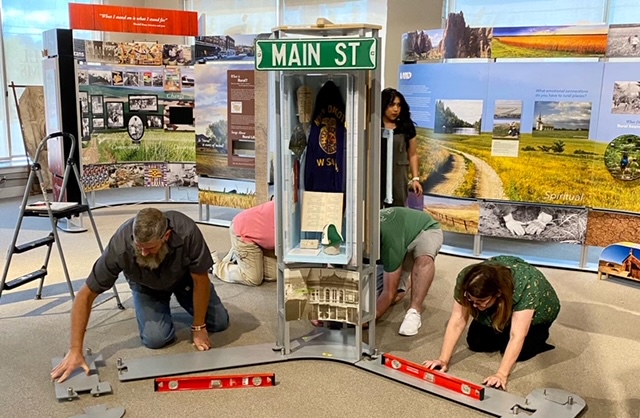
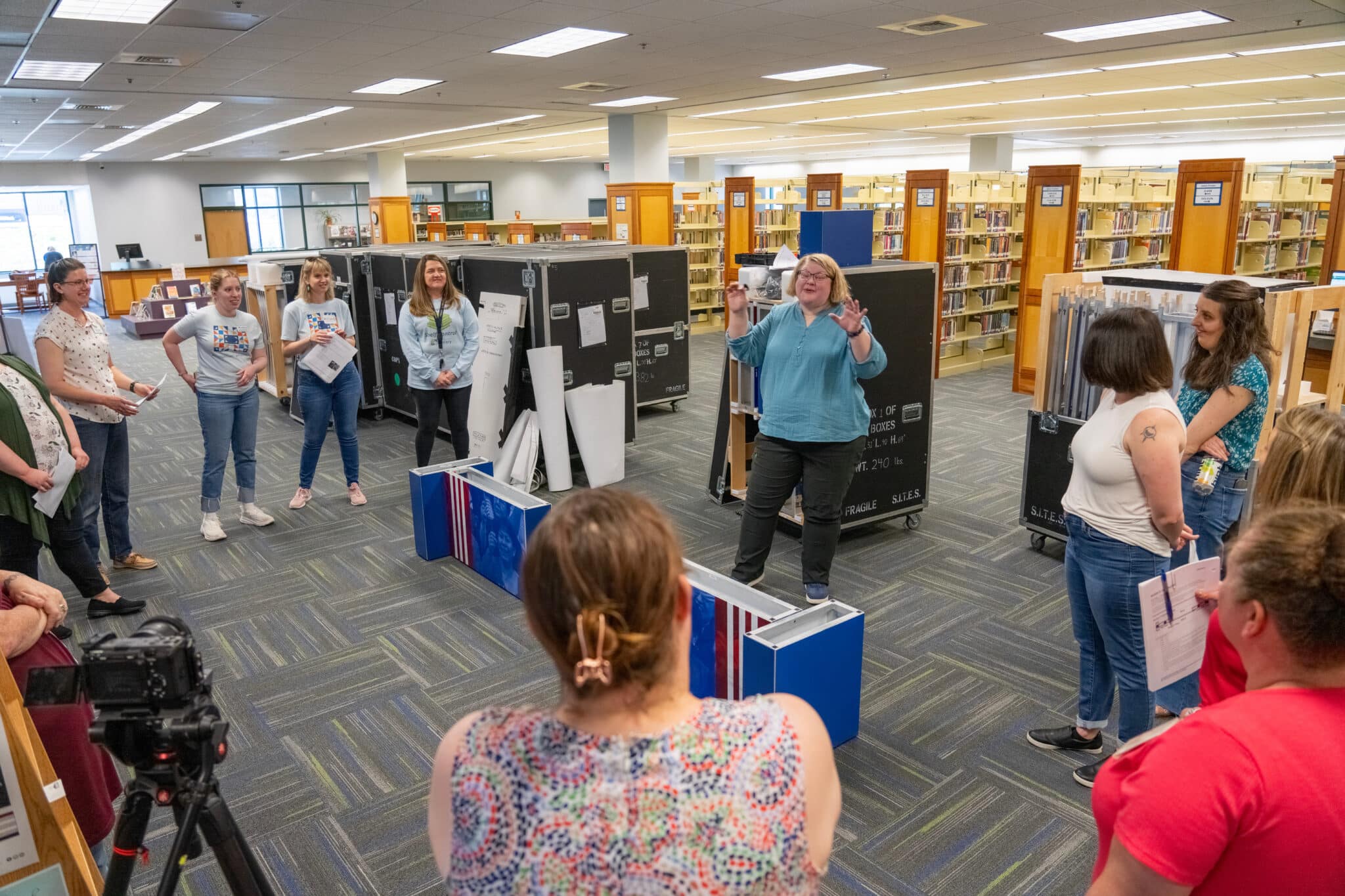
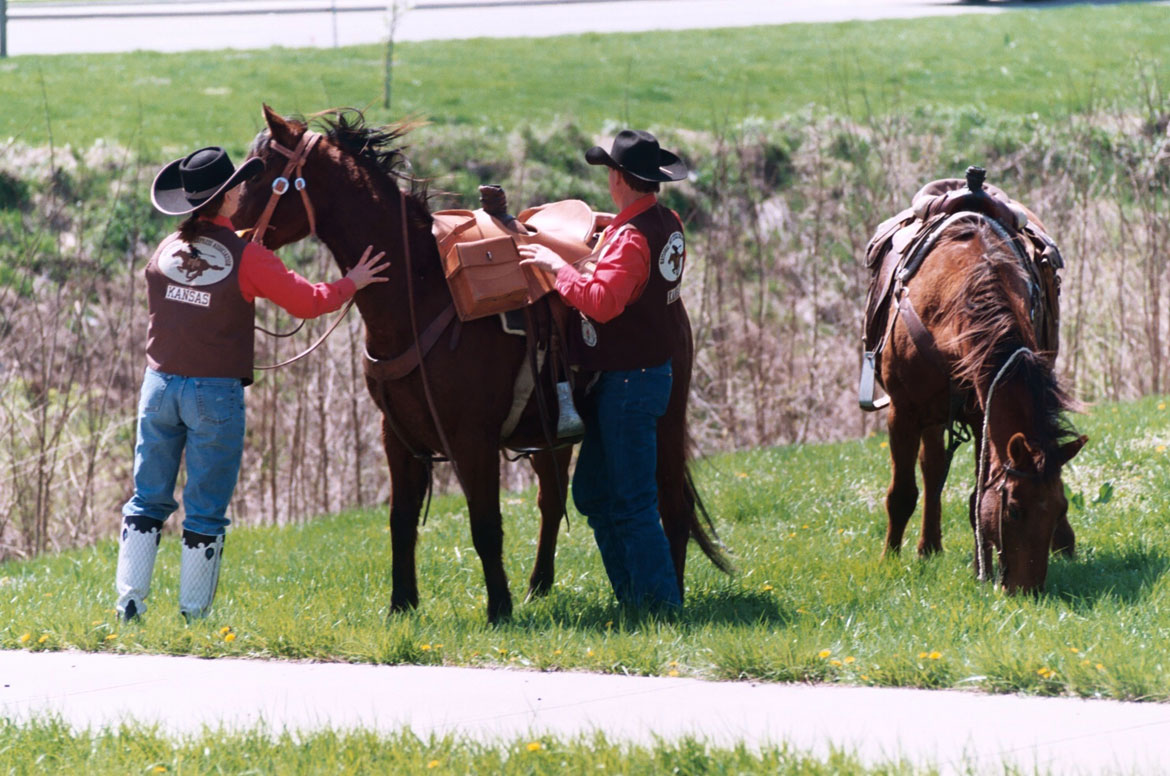

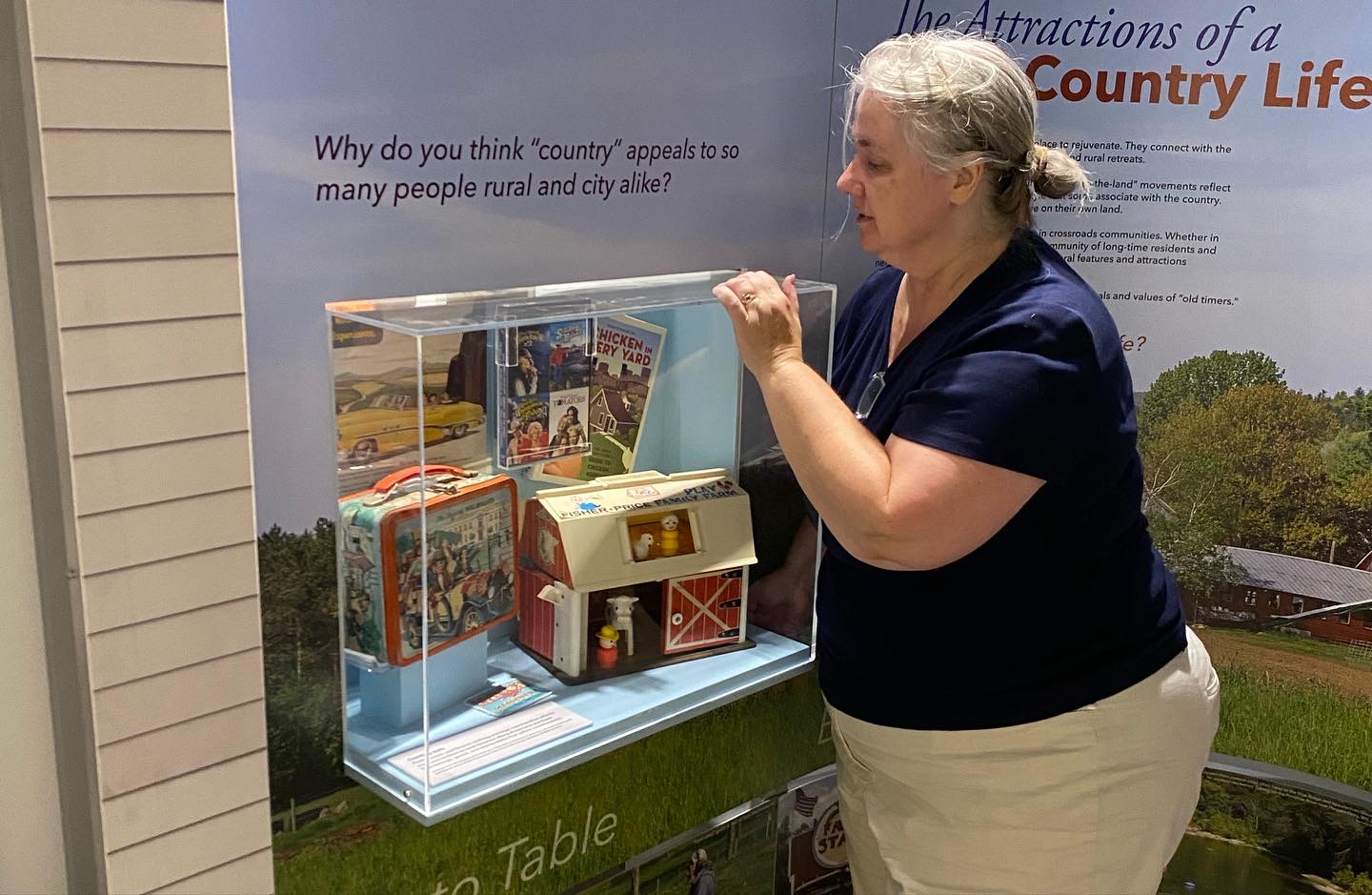
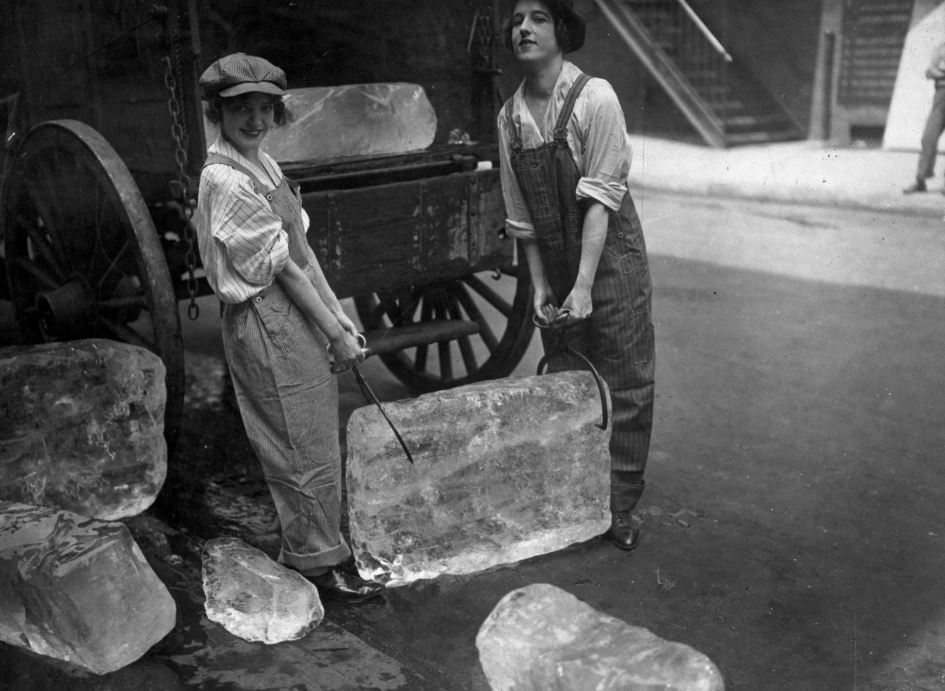
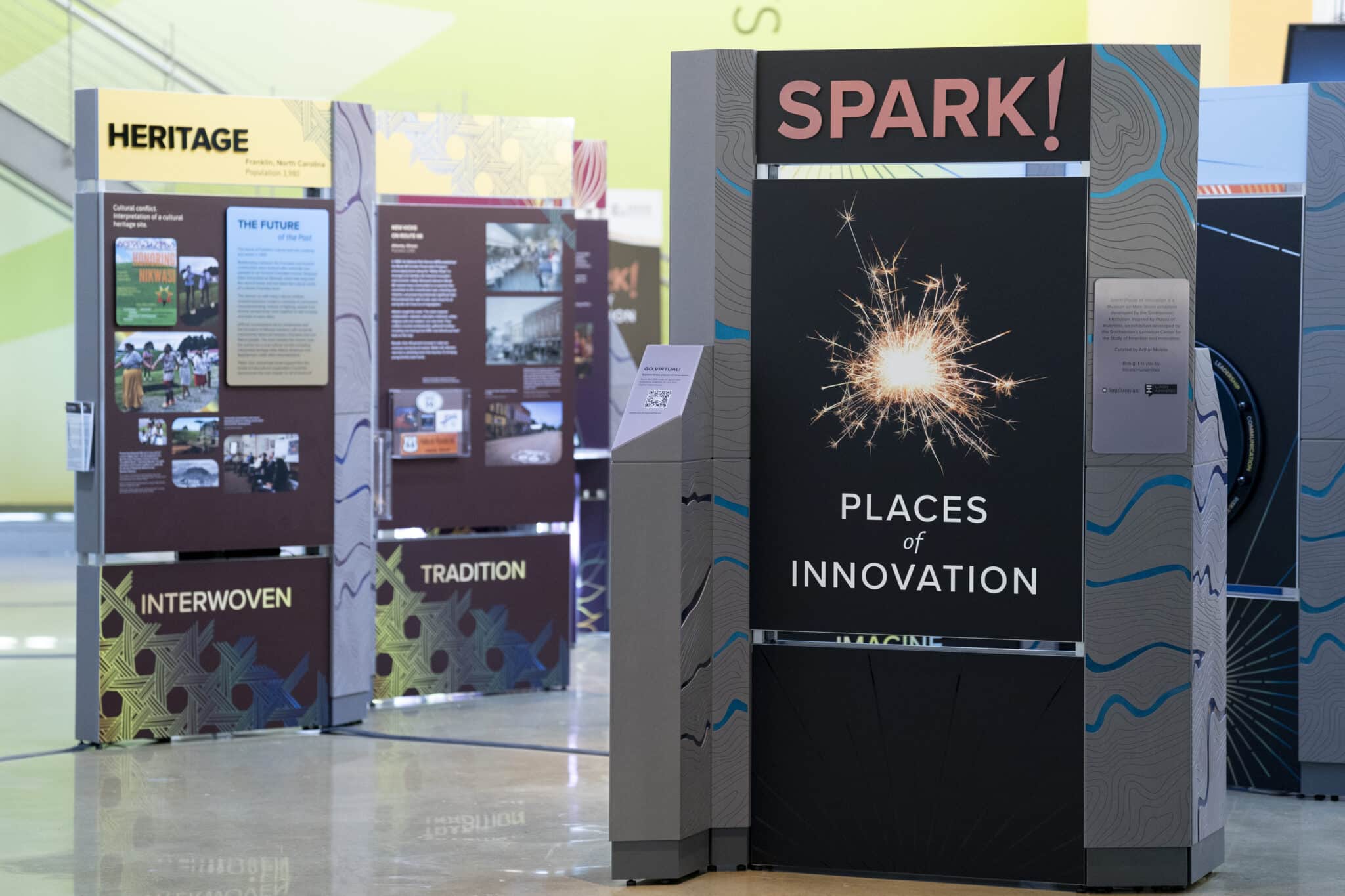

About "Spark!" - 2025/2026 Tour
The story of human history is written in inventions and innovations. People are problem-solvers. Sometimes we invent. More often, we innovate—we introduce a fresh idea or an invention into use in some way that creates a new way of doing or thinking. Invention can happen anywhere and it’s happening right now in small towns across America. Rural Americans are creating new products, taking risks, meeting challenges together, and seizing upon exciting opportunities that change local life and sometimes reach far beyond.
Spark! Places of Innovation explores the unique combination of places, people, and circumstances that sparks innovation and invention in rural communities. Inspired by an exhibition by the National Museum of American History, the exhibition features stories gathered from diverse communities across the nation. Photographs, engaging interactives, objects, videos, and augmented reality bring a multilayered experience to reveal the leaders, challenges, successes, and future of innovation in each town.
This exhibition will be the springboard for diverse local programming in the humanities, sciences, and arts. Visitors will be inspired to learn about how innovation has shaped their own communities and how they may be innovators themselves. Community members will come together in conversation about their history, present, and future.
This exhibition will explore questions such as:
- What is the role of creative thinkers and inventors in a town?
- What resources do towns have for innovation and invention?
- How important is the role of self-expression and openness to change?
- How does a place encourage risk-taking?
- How can different perspectives and backgrounds contribute to innovation?
Description courtesy of the Smithsonian.
Visit "Spark! Places of Innovation" at...
Carteret County Public Library - Beaufort Branch Library (Beaufort)
Alamance County Public Libraries - May Memorial Library (Burlington)
*dates are subject to change
Past Exhibitions: 2010 - 2025 Tours
Exhibition tours are part of the Museum on Main Street (MoMS) program. It is a collaboration between the Smithsonian Institution Traveling Exhibition Services (SITES) and state humanities councils nationwide, including North Carolina Humanities, that brings exhibitions and programs to small-town communities and residents of rural America. Support for MoMS has been provided by the United States Congress.
Selected exhibition host organizations receive and host exhibitions from North Carolina Humanities for approximately six weeks, rent-free. They may also receive up to $5,000 in grant funding to support the design and implementation of public programs, events, companion exhibits, and resources that enhance themes of each unique exhibition.
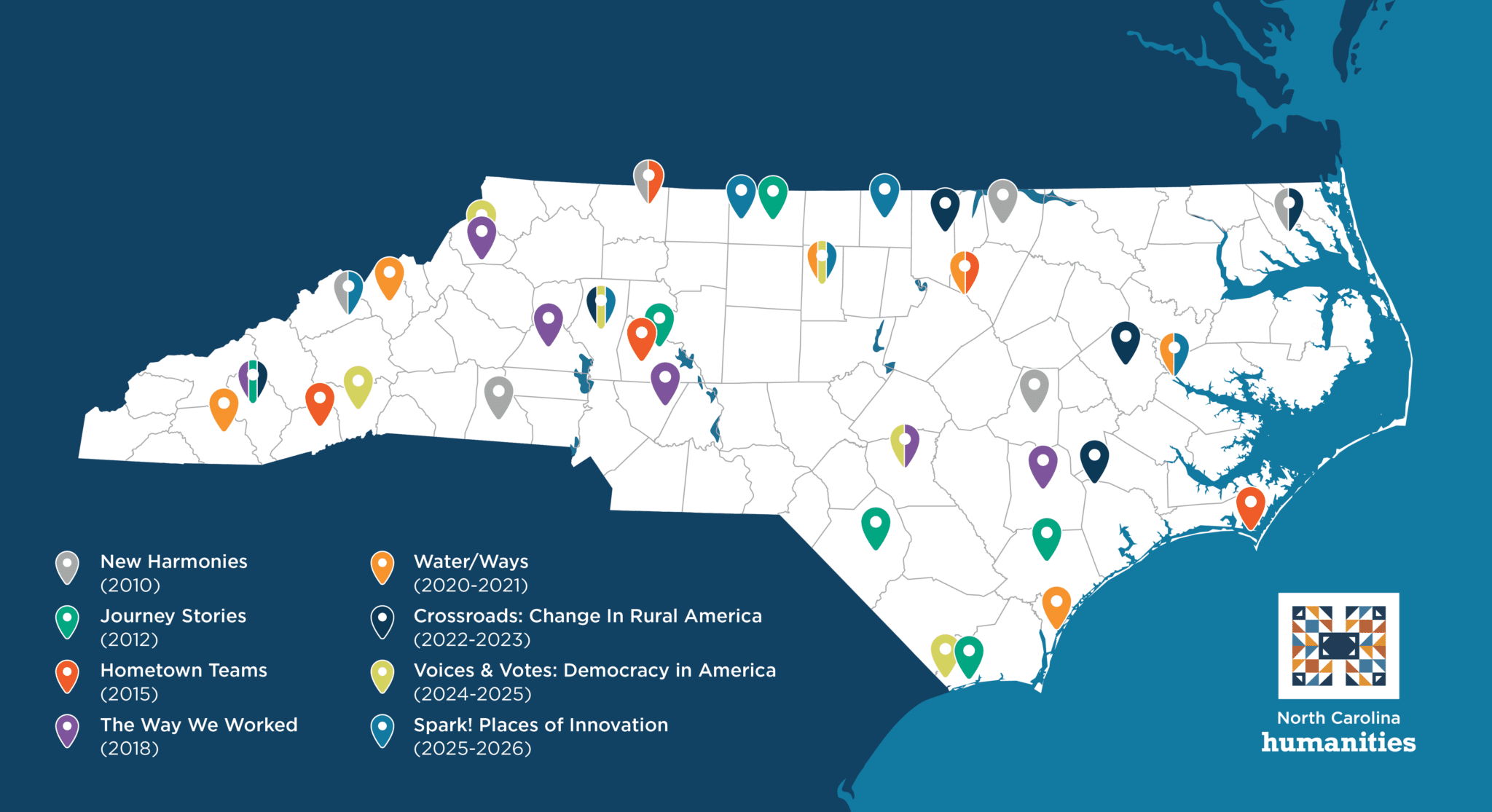
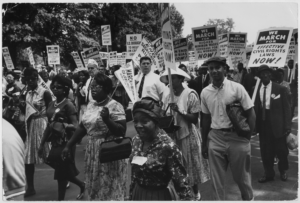
Our democracy demands action, reaction, vision, and revision. From revolution and suffrage, to civil rights and casting ballots, everyone in every community is part of this ever-evolving story – the story of democracy in America. Voices and Votes: Democracy in America was a springboard for discussions about who has the right to vote, what are the freedoms and responsibilities of citizens, and how different groups have sought representation over time. The exhibition included many dynamic features including educational and archival video; interactive games; historical objects like campaign souvenirs, voter memorabilia, and protest material; and more.
The tour was supported in part by Our State Magazine, the National Humanities Center, and the League of Women Voters’ of North Carolina.
The exhibition was on view at:
- Iredell County Public Library (Statesville)
- Southwest Brunswick Branch library (Carolina Shores)
- Cumberland County Public Library (Fayetteville)
- Alamance Community College (Graham)
- Appalachian State University (Boone)
- Henderson County Public Library (Hendersonville)
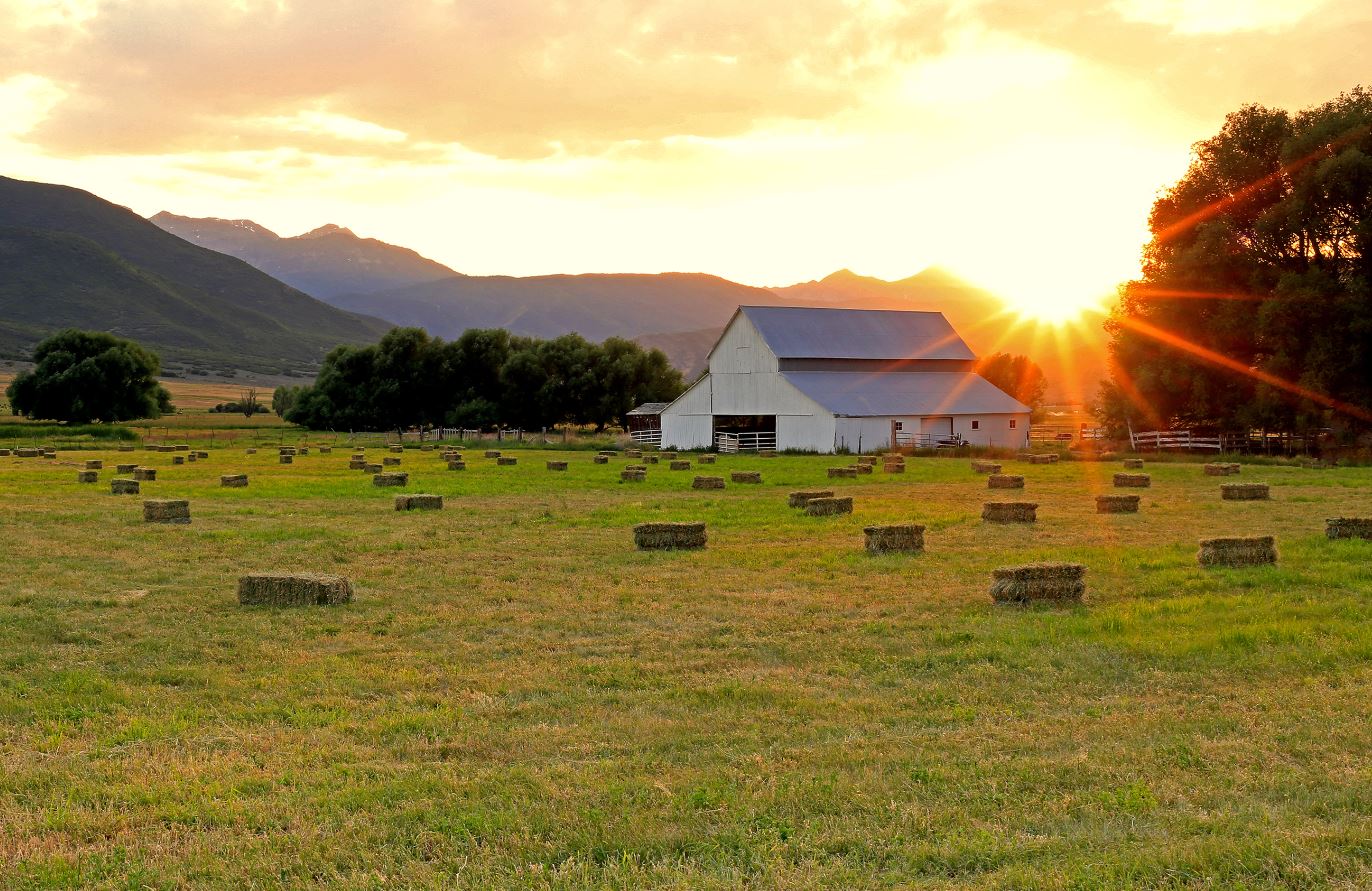 Crossroads: Change in Rural America offered communities a chance to look at their own paths to highlight the changes that affected their fortunes over the past century. The exhibition explored how rural America embraces the notion that their citizens and their cultural uniqueness are important assets. All Americans benefit from rural America’s successes, and we can learn great things from listening to those stories.
Crossroads: Change in Rural America offered communities a chance to look at their own paths to highlight the changes that affected their fortunes over the past century. The exhibition explored how rural America embraces the notion that their citizens and their cultural uniqueness are important assets. All Americans benefit from rural America’s successes, and we can learn great things from listening to those stories.
The tour was supported in part by the National Humanities Center, the NC Rural Center, North Carolina Sea Grant, and NC Water Resources Research Institute.
The exhibition was on view at:
- Iredell Museums (Statesville)
- Joyner Library at East Carolina University (Greenville)
- Granville County Historical Society and Museum (Oxford)
- Museum of the Albemarle (Elizabeth City)
- Mountain Heritage Center at Western Carolina University (Cullowhee)
- Onslow County Museum (Richlands)
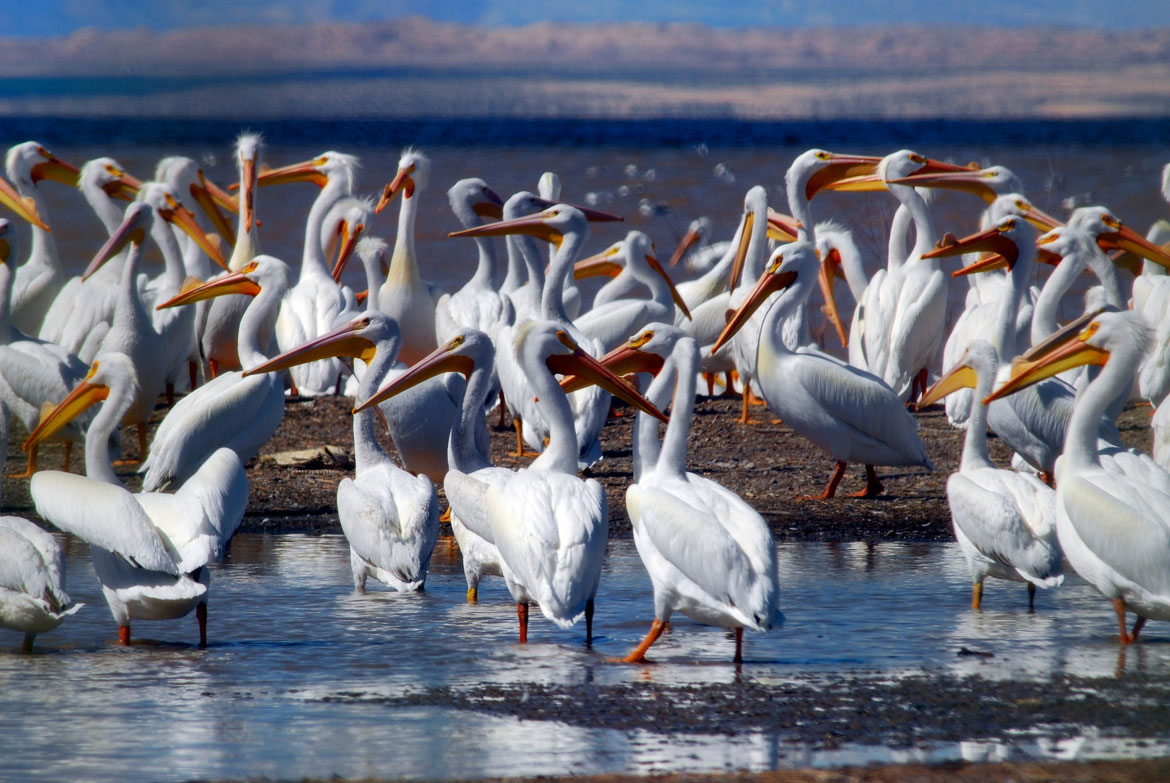 Water/Ways explored the relationships between people and water – environmentally, culturally, and historically. It examined water as an essential natural resource that allows us to travel, determines where we live, controls what we eat and drink, and inspires culture.
Water/Ways explored the relationships between people and water – environmentally, culturally, and historically. It examined water as an essential natural resource that allows us to travel, determines where we live, controls what we eat and drink, and inspires culture.
Looking to learn more about Water/Ways? Download and print the official North Carolina Water/Ways Coloring Guidebook!
The tour was supported in part by the National Humanities Center, the North Carolina Museum of Natural Sciences, North Carolina Sea Grant, NC Water Resources Research Institute, and Our State Magazine.
The exhibition was on view at:
- Macon County Public Library (Franklin)
- Wake Forest Historical Museum (Wake Forest)
- NC Estuarium (Washington)
- Wrightsville Beach Museum (Wrightsville Beach)
- Alamance Community College (Graham)
- Yancey County Public Library (Burnsville)
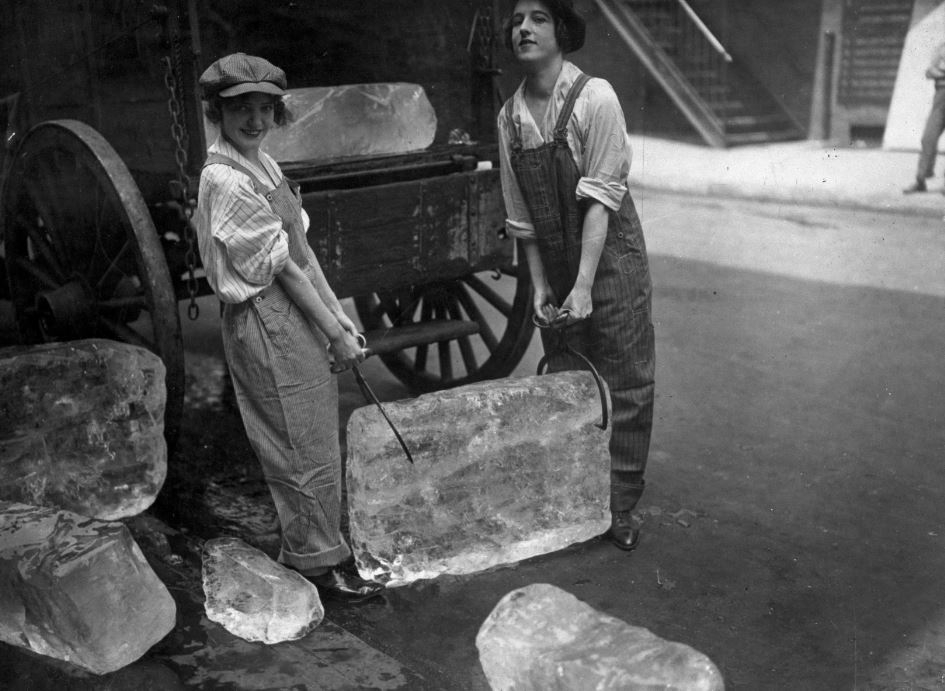 The Way We Worked showcased American workers performing a diverse array of jobs that power our society and contribute to our shared culture. It traced the many changes that have affected the workforce and work environments over the past 150 years, including the growth of manufacturing and increasing use of technology. The tour was supported in part by the Porter Durham Family.
The Way We Worked showcased American workers performing a diverse array of jobs that power our society and contribute to our shared culture. It traced the many changes that have affected the workforce and work environments over the past 150 years, including the growth of manufacturing and increasing use of technology. The tour was supported in part by the Porter Durham Family.
The exhibition was on view at:
- Eastern Cabarrus Historical Society (Mt. Pleasant)
- Blowing Rock Art & History Museum (Blowing Rock)
- Cowan Museum of History & Science (Kenansville)
- Cumberland County Public Library (Fayetteville)
- Historical Association of Catawba County (Newton)
- Mountain Heritage Center (Cullowhee)
 Hometown Teams: How Sports Shape America explored the value of sports in history ranging from ancient Cherokee Indians with anetso, the ancestor of modern day lacrosse, to current day professional teams such as the Carolina Panthers and Carolina Hurricanes.
Hometown Teams: How Sports Shape America explored the value of sports in history ranging from ancient Cherokee Indians with anetso, the ancestor of modern day lacrosse, to current day professional teams such as the Carolina Panthers and Carolina Hurricanes.
The exhibition was on view at:
- Mount Airy Museum of Regional History (Mount Airy)
- Wake Forest Historical Museum (Wake Forest)
- Waterworks Visual Arts Center (Salisbury)
- Core Sound Waterfowl Museum & Heritage Center (Harkers Island)
- Transylvania County Library (Brevard)
- Iredell County Public Library (Statesville)
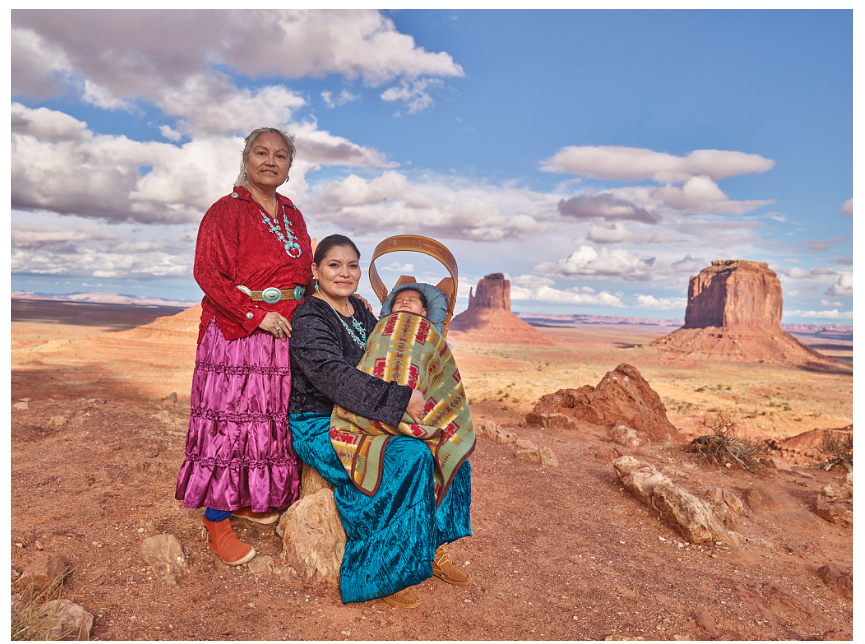 Journey Stories examined the tales of how we and our ancestors came to America. From Native Americans to new American citizens, regardless of our ethnic or racial background, everyone has a story to tell.
Journey Stories examined the tales of how we and our ancestors came to America. From Native Americans to new American citizens, regardless of our ethnic or racial background, everyone has a story to tell.
The exhibition was on view at:
- Pender County Public Libraries (Burgaw)
- The Museum and Archives of Rockingham County (Wentworth)
- Mountain Heritage Center (Cullowhee)
- North Carolina Museum of the Coastal Plain (Wilson)
- North Carolina Transportation Museum (Spencer)
- Robeson County History Museum (Lumberton)
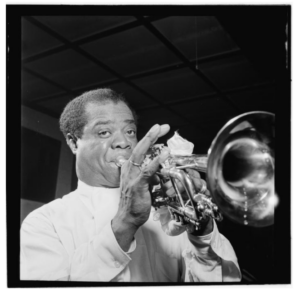 New Harmonies: Celebrating American Roots Music took rural communities in North Carolina on a journey through the development of Americans’ creative expression through music. The story was full of surprises about familiar songs, histories of instruments, the roles of religion and technology, and the continuity of musical roots from “Yankee Doodle Dandy” to the latest pop hit.
New Harmonies: Celebrating American Roots Music took rural communities in North Carolina on a journey through the development of Americans’ creative expression through music. The story was full of surprises about familiar songs, histories of instruments, the roles of religion and technology, and the continuity of musical roots from “Yankee Doodle Dandy” to the latest pop hit.
The exhibition was on view at:
- Mount Airy Museum of Regional History (Mount Airy)
- Warren County Memorial Library (Warrenton)
- Museum of the Albemarle (Elizabeth City)
- Arts Council of Wayne County (Goldsboro)
- Rural Heritage Museum (Mars Hill)
- Don Gibson Theatre (Shelby)

